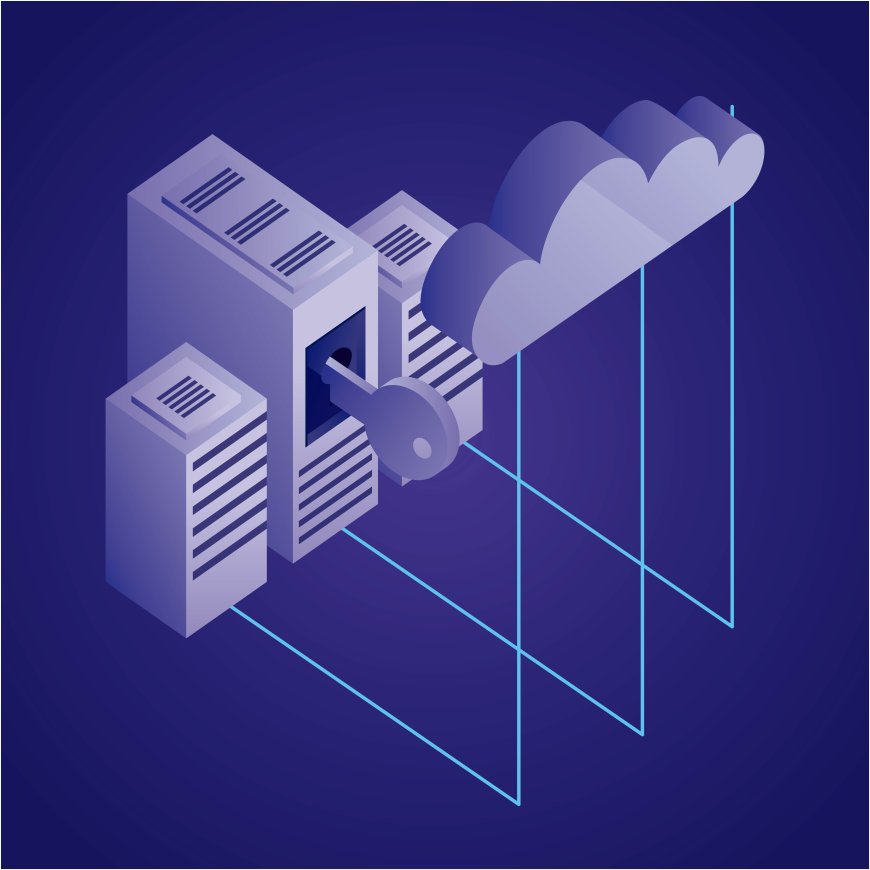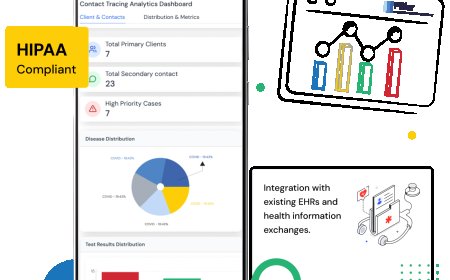Cloud Server: The Ultimate Beginner’s Guide Explained
Cloud servers function by leveraging virtualisation. A central physical server is divided using a hypervisor — software that creates and manages virtual machines.

In todays digital age, businesses and individuals rely heavily on data storage, application hosting, and seamless web operations. To meet these needs, traditional servers are slowly being replaced by cloud servers a more flexible, scalable, and cost-efficient alternative. Whether you're a startup looking to launch a website or an enterprise scaling global operations, understanding cloud servers is key to navigating modern technology infrastructure.
In this blog, we'll break down what cloud servers are, how they work, and why they have become the backbone of the modern internet.
What is a Cloud Server?
A cloud server is a virtual server that runs in a cloud computing environment rather than on a physical, on-site server. It utilizes virtualization technology to divide physical servers into multiple virtual machines, each acting as an independent server environment.
These virtual servers are hosted, managed, and delivered over a network usually the internet. Cloud servers can be accessed remotely and used for a wide range of purposes such as hosting websites, managing databases, running applications, or storing files.
How Does a Cloud Server Work?
Cloud servers function by leveraging virtualization. A central physical server is divided using a hypervisor software that creates and manages virtual machines. Each virtual server or "cloud server" operates independently, with its own operating system, storage, and resources like CPU and RAM.
All these servers are hosted in data centers and connected through high-speed internet. When you use a cloud server, you're accessing computing power through a remote network instead of a local physical device.
Because of this, users can scale resources up or down in real-time based on their requirements. You pay only for the resources you use such as bandwidth, processing power, or storage.
Key Features of Cloud Servers
1. Scalability
Cloud servers offer instant scalability. If your website or application suddenly experiences a spike in traffic, you can easily scale up the CPU, RAM, or storage without downtime.
2. High Availability
With cloud infrastructure, your server is not dependent on one physical machine. If a physical server fails, the system automatically reroutes to another functioning server, ensuring uptime and availability.
3. Remote Accessibility
Cloud servers can be accessed from anywhere with an internet connection. This remote access makes it ideal for businesses with distributed teams or global operations.
4. Security
Cloud servers include robust security protocols including encryption, firewalls, access controls, and DDoS protection. Security is handled at multiple layers, both physical and virtual.
5. Cost-Efficiency
You dont have to invest in expensive hardware or maintenance. Cloud server pricing is typically based on a pay-as-you-use model, which means youre only charged for the resources you consume.
Types of Cloud Servers
There are several types of cloud servers available, depending on your performance, control, and budget requirements:
1. Public Cloud Server
Hosted in a shared environment, public cloud servers are cost-effective and suitable for websites, blogs, and small businesses. Resources are shared among multiple users, but each has its own isolated environment.
2. Private Cloud Server
A private cloud server offers dedicated resources on a cloud infrastructure. It provides greater control, security, and customization, making it ideal for businesses with specific compliance or data security needs.
3. Hybrid Cloud Server
This setup combines both public and private cloud features. Businesses can run sensitive tasks on private servers while handling general workloads on public cloud infrastructure.
Benefits of Using a Cloud Server
1. Flexibility for Growing Businesses
A cloud server is perfect for growing organizations because it allows for rapid deployment and easy scaling. Whether youre launching a new application or expanding your services, the infrastructure adapts to your needs.
2. Reduced Downtime
Thanks to built-in failover mechanisms and server redundancy, cloud servers offer better uptime compared to traditional hosting solutions. This ensures that your business remains online 24/7.
3. Global Reach
With cloud servers located in data centers around the world, businesses can deploy applications closer to their users. This minimizes latency and enhances user experience.
4. Environmentally Friendly
Cloud computing uses resources more efficiently. By consolidating server loads, data centers reduce energy consumption and carbon emissions compared to on-premises setups.
5. Backup and Recovery
Automated backups and disaster recovery options are standard in cloud server setups. This protects against data loss and ensures business continuity.
Common Use Cases for Cloud Servers
-
Website Hosting: Ideal for blogs, e-commerce platforms, and corporate websites with varying traffic loads.
-
App Hosting: Supports deployment of web apps, mobile backends, and SaaS solutions.
-
Data Storage & Backup: Secure and scalable storage for files, databases, and backups.
-
Development & Testing: Provides a sandbox environment for software development and QA testing.
-
Enterprise Resource Planning (ERP): Powers robust ERP tools for business process management.
Is a Cloud Server Right for You?
If you're managing a growing website, developing cloud-native applications, or simply looking to modernize your IT infrastructure, a cloud server is a smart investment. The flexibility, performance, and cost-effectiveness make it a suitable choice for startups, enterprises, developers, and digital agencies alike.
However, it's essential to evaluate your specific requirements:
-
Do you need scalable infrastructure?
-
Are uptime and performance crucial to your operations?
-
Is remote accessibility important?
-
Do you prefer paying for only what you use?
If you answered yes to most of these, a cloud server will likely meet your needs better than a traditional hosting setup.
Final Thoughts
The cloud server has revolutionized the way individuals and businesses host, store, and manage digital assets. It offers a modern, dynamic, and affordable alternative to physical servers. With cloud technology advancing rapidly, adopting cloud servers is no longer just an optionits a strategic move toward future-ready IT infrastructure.
As digital demands grow, so does the importance of agile and resilient hosting. Whether you're launching a new business, running a high-traffic website, or managing global applications, cloud servers provide the reliability, power, and efficiency needed to succeed in a cloud-first world.






























